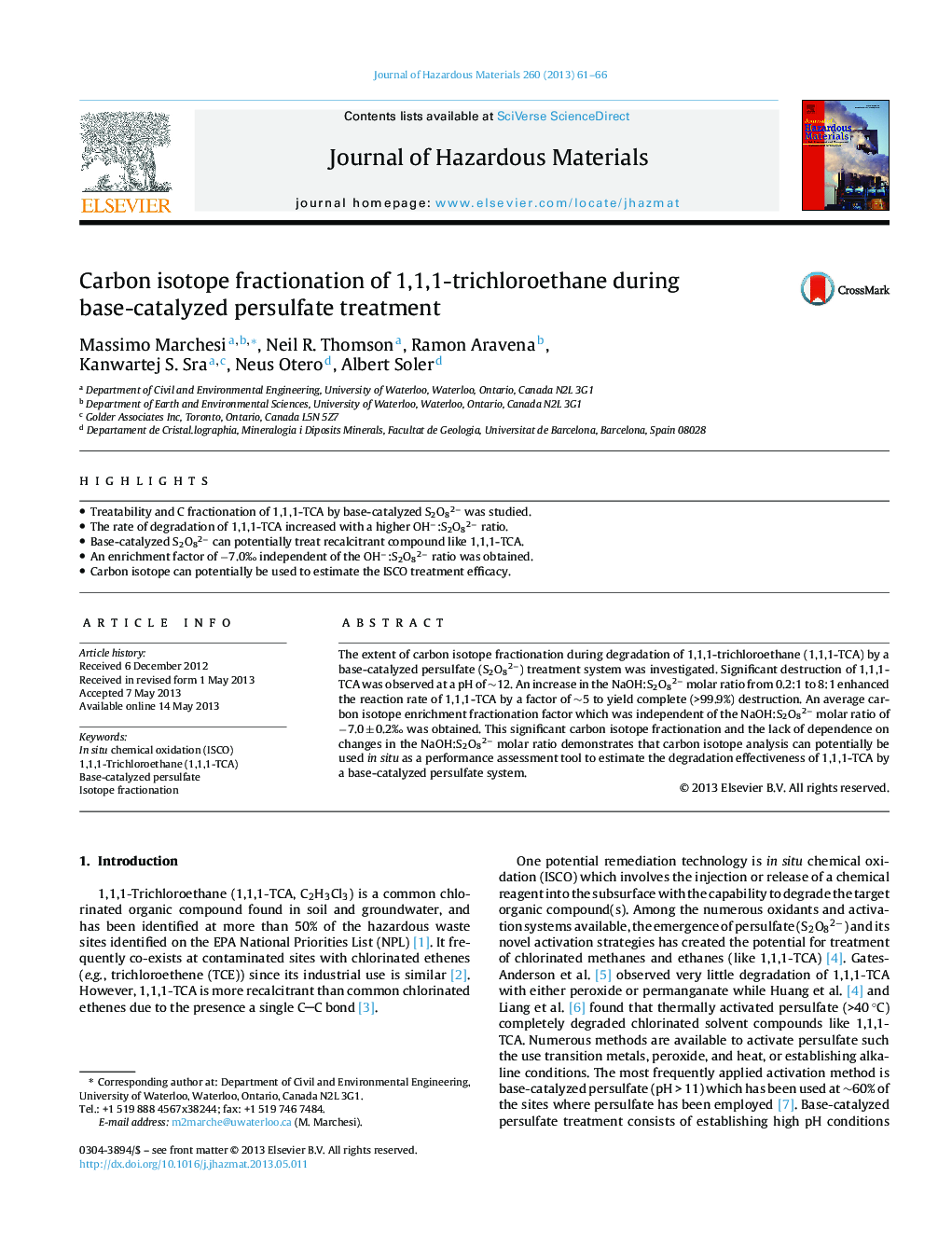| Article ID | Journal | Published Year | Pages | File Type |
|---|---|---|---|---|
| 6972124 | Journal of Hazardous Materials | 2013 | 6 Pages |
Abstract
The extent of carbon isotope fractionation during degradation of 1,1,1-trichloroethane (1,1,1-TCA) by a base-catalyzed persulfate (S2O82â) treatment system was investigated. Significant destruction of 1,1,1-TCA was observed at a pH of â¼12. An increase in the NaOH:S2O82â molar ratio from 0.2:1 to 8:1 enhanced the reaction rate of 1,1,1-TCA by a factor of â¼5 to yield complete (>99.9%) destruction. An average carbon isotope enrichment fractionation factor which was independent of the NaOH:S2O82â molar ratio of â7.0 ± 0.2â° was obtained. This significant carbon isotope fractionation and the lack of dependence on changes in the NaOH:S2O82â molar ratio demonstrates that carbon isotope analysis can potentially be used in situ as a performance assessment tool to estimate the degradation effectiveness of 1,1,1-TCA by a base-catalyzed persulfate system.
Related Topics
Physical Sciences and Engineering
Chemical Engineering
Chemical Health and Safety
Authors
Massimo Marchesi, Neil R. Thomson, Ramon Aravena, Kanwartej S. Sra, Neus Otero, Albert Soler,
